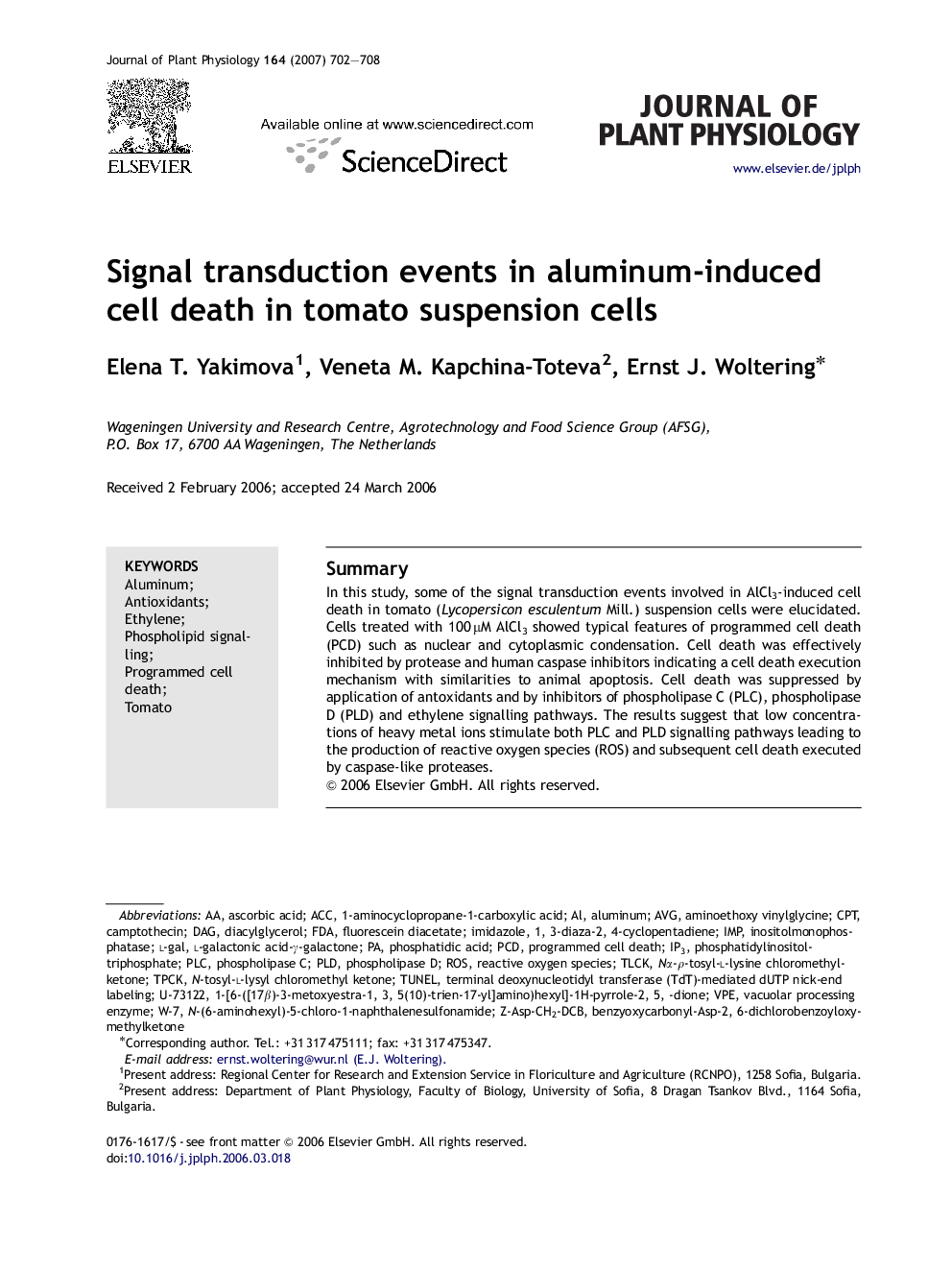| Article ID | Journal | Published Year | Pages | File Type |
|---|---|---|---|---|
| 2057504 | Journal of Plant Physiology | 2007 | 7 Pages |
SummaryIn this study, some of the signal transduction events involved in AlCl3-induced cell death in tomato (Lycopersicon esculentum Mill.) suspension cells were elucidated. Cells treated with 100 μM AlCl3 showed typical features of programmed cell death (PCD) such as nuclear and cytoplasmic condensation. Cell death was effectively inhibited by protease and human caspase inhibitors indicating a cell death execution mechanism with similarities to animal apoptosis. Cell death was suppressed by application of antoxidants and by inhibitors of phospholipase C (PLC), phospholipase D (PLD) and ethylene signalling pathways. The results suggest that low concentrations of heavy metal ions stimulate both PLC and PLD signalling pathways leading to the production of reactive oxygen species (ROS) and subsequent cell death executed by caspase-like proteases.
